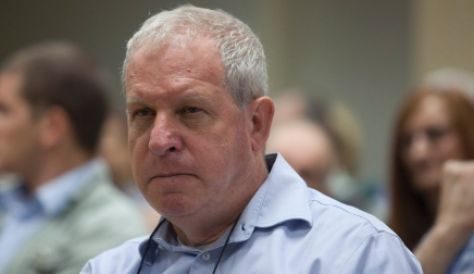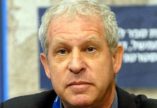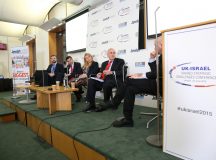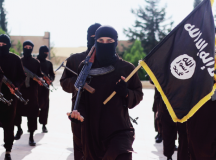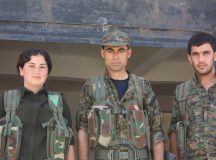Giora Eiland spoke to Fathom about six steps the coalition must take to defeat ISIS: cooperating with Russia, persuading Turkey to play a constructive role, supporting the Kurdish forces on the ground, ensuring a flow of actionable intelligence that can be translated into timely and effective strikes to destroy ISIS, passing a UN resolution making it clear that any state, company or individual that trades with ISIS will face very painful sanctions, and waging a real battle of ideas. A former head of the Israeli National Security Council, a post he held from 2004 to 2006, Eiland served in the Israel Defense Forces for 33 years, heading the Strategic Planning Branch at the end of his career. He is now a senior research associate at the Institute for National Security Studies in Tel Aviv. The interview took place on 04 December 2015.
*
From a purely military point of view, ISIS is very weak. They do not have an air-force, long-range missiles, or sophisticated weapons. However, in spite of this, ISIS is a very dangerous organisation. Their totalitarian ideology speaks to the hearts and the minds of so many Muslims, not just in Iraq and Syria, but in many other countries, especially in the West. And while they have used only conventional weapons so far, if they were to acquire unconventional weapons, especially chemical or biological weapons, they would be happy to use them. ISIS will also try to use cyber-terrorism to collapse technological infrastructure. We should not underestimate ISIS.
The West seems unwilling to take six necessary steps needed to defeat ISIS: cooperating with Russia, persuading Turkey to play a constructive role, supporting the Kurdish forces on the ground, ensuring a flow of actionable intelligence that can be translated into timely and effective strikes to destroy ISIS, passing a UN resolution making it clear that any state, company or individual that trades with ISIS will face very painful sanctions, and waging a real battle of ideas.
Cooperating with Russia
First, there needs to be better cooperation between Russia and the West. I know that there are conflicting interests here, especially in Syria, but the priority should be clear. It is important that the international community works together to defeat ISIS and then discusses the outstanding issues. The Russians do deserve credit for their foresight. They identified the possibility of an Islamic caliphate about 12 years ago. They spoke about that very clearly and explicitly, warning that the vacuum being created in the aftermath of the Iraq war in 2003 would eventually lead to the creation of an Islamic state. It is clear today that they were not wrong. It makes little sense for the West not to cooperate with Russia against a common enemy.
Pressuring Turkey
Second, while Turkey is a distinguished member of NATO, it is operating against the interests of NATO. Let’s be very clear. Turkey is assisting ISIS directly and indirectly, and in this regard the Russians are 100 per cent correct. Turkey is actually fighting the Kurds, preventing assistance to the Kurds, while the Kurds are the only friendly forces that are fighting ISIS on the ground. It is very hard for them because they are poorly equipped and because the Turks interrupt their supply and resupply.
It is clear that Turkey is buying oil from ISIS; President Putin was right about that. Additionally, Turkey is not taking the necessary measures to prevent the flow of recruits from the UK and France and elsewhere to ISIS in Syria. And speaking as a military person about the shooting down of the Russian aircraft, when I observed all the information, including that released by the Turks, it was clear that it was a calculated ambush. The Russians patrol along the border; they do not go into Turkey but along the border. There is a piece of land where the map has a sudden curve to the south and the Russian aircraft simply crossed this little enclave, posing no threat to the Turkish territories whatsoever. The Turks probably put their F16 in the air waiting for something like this to happen. They were looking for a situation like this because it creates unnecessary tension between NATO and Russia, tension which does not serve the interests of the West. The rest of the NATO members need to send a clear message to Turkey.
Supporting the Kurds
Third, the Kurds are our most reliable partners, so we need to support them properly. They are the most loyal and committed forces fighting against ISIS not because they want to serve the West but because they want to save their own lives. So, if the international community does not want to put Western boots on the ground, it really needs to give proper Western support to the Kurds. And yet they remain are poorly equipped, and Turkish interruption of their supply and resupply is tolerated by the coalition. More: the Kurds rightly complain not only about the lack of military support and equipment but also the absence of real coordination of their manoeuvres on the ground with the air support that could be given to them. Western advisors stationed with the Kurds should be coordinating air support, so that whenever they carry out a ground assault it enjoy full and close air support. That would be very helpful, but so far there is no connection between the way that the Kurds carry out their ground operation and the sporadic air strikes that are carried out by Western forces.
Coordinating intelligence
Fourth, there has to be a major coordinated intelligence effort. There are four different sources of intelligence, all of which are essential to a coordinated campaign against ISIS. The first is vision intelligence, which is gathered by cameras, satellites, and UAVs which fly 24 hours a day. The second is signal intelligence which can locate, intercept and listen to communications: pagers, texts, mobile phones, and so on. Third, there is human intelligence which is gained by recruiting people who will work for you. There are systems that enable you to recruit the right people who will give the right information. They don’t necessarily have to be people who belong to ISIS. They could be ordinary people who live in cities like Raqqa or Mosul who can inform. And lastly there is the internet, which gives you a huge variety of intelligence. However, in order to be effective you have to create a centre that can receive and use all this intelligence and then translate it into targets that can be attacked in minutes.
At present, that is not happening. Intelligence efforts so far have been very sporadic and poorly organised, lacking the right operational procedure. But you cannot take 24 hours to make a decision and be effective. You have to have UAVs in the air 24/7 to get information in real time and attack targets in minutes or even seconds. I have not been impressed by the sorties that are being carried out by the Americans, the British, the French, the Dutch, whoever. It can only be effective when it is based on real-time intelligence. International cooperation in this area would greatly enhance the effectiveness of airstrikes.
An example of why this is necessary, and how failures of intelligence can hamper the war effort, is ISIS’s capture of Ramadi about six months ago. Ramadi is a big city and it’s a strategic point on the main road between Baghdad and Amman in Jordan and sits on the bank of the biggest river in Iraq. The city was conquered on a Sunday, during the day time, when hundreds of Toyota vehicles brought hundreds of ISIS fighters from the north to this city across open ground. It took them a few hours to arrive in the city. What could be better prey for UAVs? It was not even interrupted by the West, and this reflects a failure of intelligence.
Intelligence is essential in the fight against terror. We suffered a wave of terrorist attacks in Israel about 10 years ago, and the steps we took to quell that wave suggest three lessons for the intelligence war against ISIS today.
First of all, we made a real effort to recruit people who would work for us. You recruit people not because they want to help you but because you take advantage of the weaknesses of people; you know certain things about them and because of the embarrassment it might cause them, because of the price they might pay, you manipulate them to work for you.
Second lesson: good intelligence is based on being pro-active, but Western intelligence agencies today tend to be quite passive. In intelligence, you make potential targets do something. You manipulate their family members, and other people. You create a chain reaction that will expose them. It is a terribly dirty world but it is justified because it can save a lot of lives.
Third lesson: effective signal intelligence requires patience; it is not a matter of locating your sources today and their being effective tomorrow. It takes years before you manage to create a map in which you can monitor and observe every telephone, laptop, potential computer, or whatever technological device they are using.
The UK began its air campaign with strikes against ISIS held oil fields. Approximately 70 per cent of ISIS’s income comes from oil. They possess many oil fields both in Syria and Iraq and so far the West has not bombed them consistently because it does not want to create any environmental problems and because everybody believes that we will one day enjoy this oil. But we have to understand that this is war. During the Second World War you destroyed the economic infrastructure of the enemy first and then rebuilt it after the victory. The very same thing has to happen now. It is not enough that two aircraft bomb something. We should fly hundreds of sorties every day and bring the complete destruction of oil fields. After ISIS is defeated, of course it will have to be rebuilt, but you have to understand that you cannot defeat ISIS through symbolic airstrikes. There has to be a concerted effort so that within a few days ISIS loses 70 per cent of their income. This is essential and it should have begun two years ago. I don’t understand why it was not.
Using the threat of sanctions
Fifth, although UN Security Council resolution 2249 was a positive step, it is amazing that so far there has been no UN resolution making it clear that any state, company or individual that trades with ISIS will face very painful sanctions. This is such a simple decision and I am sure it would receive support from all the relevant parties, especially the Russians. It is an essential step in shutting down ISIS’s revenue stream.
Waging a battle of ideas
Sixth, we must engage in a battle of ideas: speaking to Muslims, presenting not only the case that ISIS is wrong but relentlessly exposing these people, who are extremely cruel on the one hand, and extremely corrupt on the other. ISIS is media savvy, managing to reach tens of thousands of potential supporters in the West by using social networks. To combat this, we need to fight a media war. We should start by shutting down some of their sites, and make sure that neither YouTube nor anyone else posts these horrible pictures and videos online. I don’t see this happening.
The bottom line is that the international community has not yet developed a clear strategy and is not yet ready to carry out the necessary measures to defeat ISIS. I must emphasise that at this point I don’t think that these measures should include deploying Western ground forces. It should include the activities that I’ve outlined, all of which are relatively simple, relatively inexpensive, and not hugely risky. Yet for some reason we are seeing weakness. It is really difficult for me to understand why this is the situation. I would expect the leading Western countries to take a much more pro-active approach and much stronger measures against an enemy of the entire civilised world.

